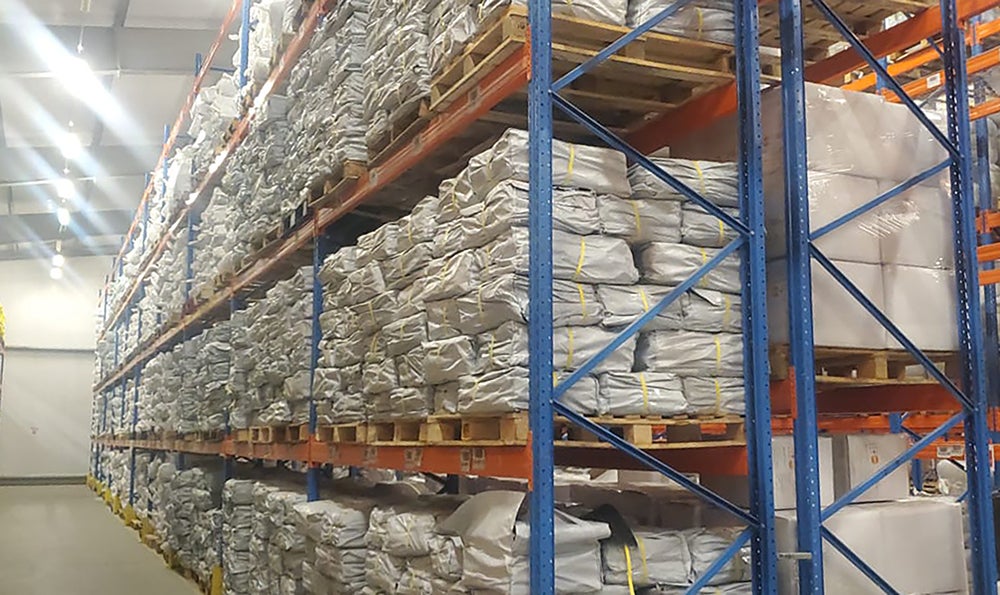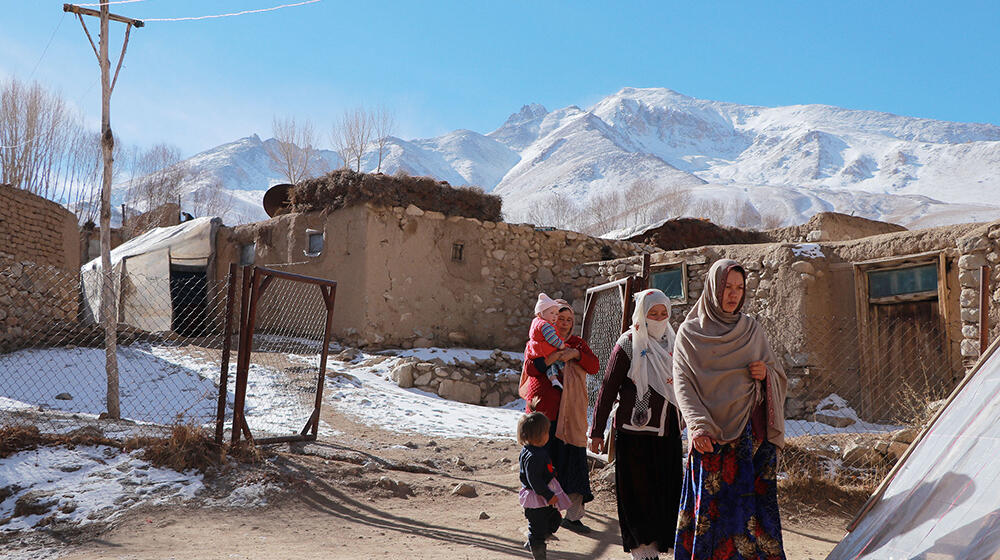Kabul, Afghanistan – Some 3.4 million Afghans are currently internally displaced with the majority of them living in temporary shelters. As the winter is fast approaching, struggling to survive will be even more challenging for them.
According to the Afghanistan: ICCT Winter Prioritization report by UNOCHA, 79 per cent of Afghan households live in shelters that need repair and 79 per cent do not have adequate access to heating. The anticipated harsh winter will further compound the already dire humanitarian situation in the country.
To help families survive the freezing temperatures in the coming months, UNFPA is working with partners to distribute winterization kits, prioritizing the most vulnerable populations such as female-headed households. The UNFPA winterization kit includes five thermal blankets, two reinforced tarpaulin sheets for added insulation against the cold weather, three thermal sleeping mats, and two jerry cans for water storage.
HealthNet TPO, one of UNFPA’s humanitarian partners in Afghanistan, recently distributed UNFPA winterization kits to 1,800 families affected by the June earthquake in the Spera district of Khost province. With an average family size of five, the 1,800 kits effectively covers 9,000 individuals.

“In Spera district, houses have been destroyed by the earthquake. Families now live in makeshift or temporary shelters, such as tents,” said Dr. Mohammad Jamal Saqib, Deputy Technical Manager at HealthNet TPO. “They do not have adequate water, sanitation and warming facilities, so the winterization kits that we distributed will definitely help ensure that the people, especially women and children, are kept warm during the winter.”
Spera district was one of the areas that suffered the most from the 5.9 magnitude earthquake that shook the southeastern region of Afghanistan last 22 June. The earthquake caused more than 1,000 deaths and 3,000 injuries, and destroyed or damaged at least 14,000 homes.
Four months since the earthquake, the affected communities are still trying to rebuild their homes – and their lives. For them, dealing with the crisis that came with the Taliban takeover of Afghanistan, followed by the earthquake, and then the upcoming winter, will require a lot of support so they can survive.
“In a situation where they have lost their homes and their belongings in the midst of a widespread crisis, it is easy for these people to lose all hopes. However, they are trying to survive but now they worry about their children and how to keep them dry during the rainy season and warm during winter,” said Dr. Saqib. “The winterization kit responds to their basic needs and it is important for their survival in this emergency situation.”
Through the support of the United Kingdom, UNFPA and partners have so far distributed 7,500 winterization kits benefiting 37,500 individuals. Plans to distribute an additional 12,000 kits to cover 60,000 individuals in the coming weeks are underway with the support of the governments of Denmark, Italy, South Korea, the United States, and Australia.


